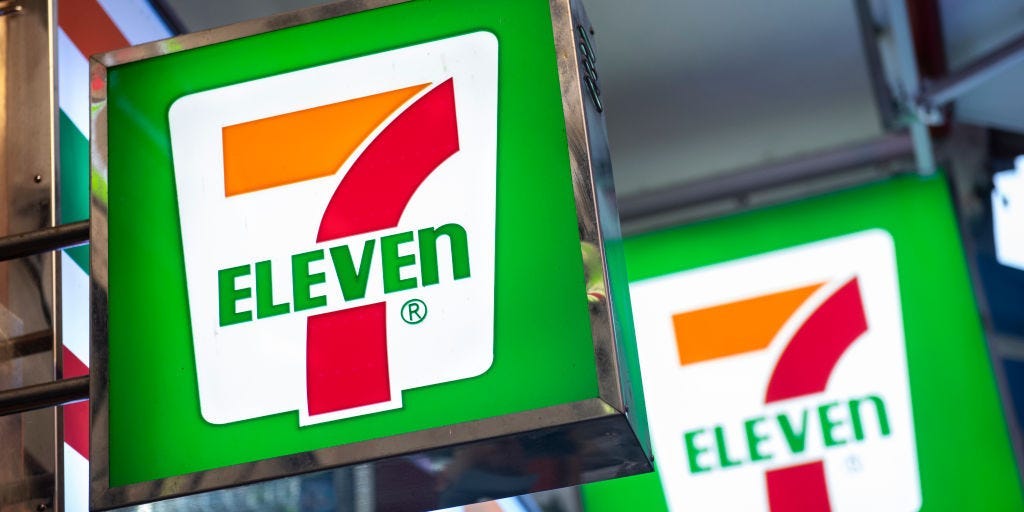
Xavier Robert, partner and chief investment officer at Bridgepoint, is one of the panelists at PEI Group’s NEXUS 2025 conference in Orlando from March 10-12. He’ll be speaking on day two of the conference, on a panel titled: ‘The dealmaking sweet spot – Life in the middle market’.
PE Hub Europe editor caught up with Robert, who is based in the private equity firm’s London headquarters, at the end of 2024 to hear how mid-market investing has been performing and how he expects the dealmaking outlook to evolve in the next 12 months. Here’s an edited version of their conversation. Click on the audio player above to listen to the full discussion.
Note: Bridgepoint owns PEI Group, the publisher of PE Hub.
How was 2024 for Bridgepoint from an investment standpoint?
2024 has been a good year for Bridgepoint, maybe because of the market position that we have as a mid-market firm – and probably the number one mid-market investor in Europe – with a private equity division, a private debt division, and we’ve also added an infrastructure division recently, focused on the US but also mid-market.
We’ve seen a lot of deal activity. As we define the mid-market as deals up to €1.5 billion roughly of enterprise value, that’s basically where 90 percent of the deals are happening compared to the large-cap environment.
The origination machine and investment strategy of Bridgepoint is very, very focused. We invested about €2 billion on the private equity side in ‘22, €3 billion in ’23 and even more this year [2024].
We had a very successful year in terms of exits. Which is a bit counter-intuitive, but as a mid-market fund, we don’t depend on IPOs. We had a lot of really good exits to large-cap private equity firms and also to trade buyers. Actually, 2024 has been the second-best year in terms of exit after 2019.
What were some of your biggest investments and exits in 2024?
We sold a company called Vitamin Well. It shows the strength of the platform on the private equity side. Bridgepoint has three private equity funds. We have a flagship fund called Bridgepoint Europe, Bridgepoint Development Capital and Bridgepoint Growth. And it’s basically the same investment strategy, but depending on the size, it goes into one of the three funds, so we cover the whole ecosystem of the mid-market.
Vitamin Well was a deal done initially by Bridgepoint Development Capital in Sweden. It’s a company that produces and sells healthy drinks and protein bars. Bridgepoint Development Capital expanded it into other countries in Scandinavia and started also to penetrate Europe.
It was an amazing, successful deal for BDC. The company was getting so big that BDC needed to de-risk the investment and so the flagship fund Bridgepoint Europe bought half of it. We managed to penetrate the US, which massively accelerated the growth of this company over the past three years. And we just sold it over the summer to Cinven with very, very strong returns for our two funds.
We’ve heard a lot about the valuation gap between buyers and sellers, particularly for second or third tier assets. Is that starting to narrow and do you expect that to help dealmaking broadly in 2025?
It is narrowing. You’ve got two situations. When you’ve got a great asset, it still goes at really high prices and you have competition for it. If there was a slight decrease in ’22 and ’23, in ‘24 it’s definitely come back. But what you’ve seen is that because people need to sell not only their star assets, but also their B assets, there the valuation gap has reduced and you start to see private equity funds accepting that the market pays lower multiples for lower quality because they need to sell at some point. The bottom has come up slightly. The market has come towards the sellers, but the sellers have also now agreed to reduce their expectations.
The other question that people ask often is, are private equity portfolios overvalued because of that? Do people still think they’re going to be able to sell the company for a big price and that’s how they value them in the books, therefore all the private equity portfolio is overvalued?
I can’t give you an answer in general, but I can talk for Bridgepoint. If you look at the four or five exits we’ve done this year, all of them were above the book value, which tells you that we are sufficiently cautious in the way we value funds, but also interestingly the EBITDA multiple we sold these companies at were above the EBITDA multiple we bought these companies at.
These companies were bought in 2020-21, which you would consider at the top of the market, but we still managed to sell them with a positive EBITDA multiple arbitrage. It’s not luck. We’ve had that across 40 years’ history at Bridgepoint. We’ve always sold, 90 plus percent of the time, companies at a higher multiple. Not because we’re good sellers, it’s because we make a company better. The companies when we sell them, they’re bigger, they’re more international, they are better run.
Are you bullish on 2025?
I am actually. The word I would use is ‘normalizing.’ If you look at Europe, inflation is at 2 percent and it’s going to go below 2 percent in 2025. You saw the ECB taking rates down, we’re at 3 percent. I’m pretty sure rates will be at 2 percent or below by the summer. The overall labor market is also cooling down. It’s not a growing environment, but it’s a normalized environment, and that’s always helpful for deals. The US has a good trajectory. You’ve got even more growth in the US. So the general environment is positive, and there’ll be more deal activity in 2025 than 2024.
But to be honest, it doesn’t really matter to us. We can always find very interesting deals, whatever the economic environment, especially when you’re in the mid-market. You’re much more linked to the micro than the macro because you buy smaller companies on which you can have a much bigger impact. There’s a lot of levers you can pull that are completely under your control. You’re not so dependent on the macro to grow your companies.
If you look at the private equity portfolio of Bridgepoint, on average, the revenue is growing at 20 percent per annum. So when European GDP oscillates between zero and two, it doesn’t really matter for us.
It’s all about where you invest. We are incredibly focused on which niche we invest in within the industry or within the sector. To take an example, our advanced industrial vertical. We don’t invest anywhere and everywhere. We only invest in agriculture science and energy transition. All the sector teams are completely focused on identifying the right targets in that space, developing the dialogue with these companies.
We’ve developed an amazing knowledge of these issues. That means when we invest in a company, we ‘ve known the company for an average of four years. We’ve had the dialogue with the owner, with the management team for four years. In the last fund, Bridgepoint Europe VII, we’ve done 11 deals and nine of them were bilaterals, outside of auctions because of the way we are sourcing the deals. That also means we buy a lot from families and from founders.
Which sub-sectors or niches did you find particularly interesting in 2024 and into 2025?
We’ve got about six or seven niches in which we spend time. All of them have been chosen because we think there’s structural growth behind them. All these niches will grow at 8-10 percent in the underlying market, then we try to pick the good ones and we apply all the operational improvement playbook. That’s where we can grow at 20 percent or 20 percent plus.
We spend quite a lot of time on energy transition, even more so now that we’ve made this deal with Energy Capital Partners on the infrastructure side. They’re purely focusing on energy transition from an infrastructure perspective, but they bring a massive knowledge into Bridgepoint that we benefit from. We work very closely together.
In Europe you have the transition towards renewable energy, which we’re benefiting from. We’ve invested in two companies recently in Europe. One’s called Windar, in Spain. When you have a wind turbine you need to build a tower to support the turbine propeller at the top, and then when it’s offshore, under the water you need what you call the foundation. Offshore wind especially is growing very fast in Europe, pushed by the willingness to develop renewable. This is a very high growth market and Windar is the number one manufacturer in Europe for the towers and the foundations for wind turbine. We invested a year ago and this company is doing incredibly well.
We’ve invested in another company called ACT, which is the number one, I think now globally. It’s a broker of carbon credits. If you’re a company, you want to be net zero, you obviously need to reduce your carbon footprint, but you can’t reduce it to zero because you still need to produce things, you need to travel, etcetera. So you need to offset the rest of your carbon footprint. ACT will come in at that time to advise you on the best strategy to offset your common footprint and then do the trade – buy the carbon credits etcetera that you need. This is a high growth and expanding space.
But on the energy transition side, the thing that is really interesting is in the US. The growth of artificial intelligence needs massive data centers, which need a lot of power. There’s a completely new economy starting around this, obviously around data center building and power generation – so ECP are very focused on that. We’ve just announced a $50 billion joint venture with KKR on this topic.
But on the private equity side, there’s a lot of manufacturing, a lot of servicing, a lot of technology around that thematic where we plan to play.
I’ll just mention another one where Bridgepoint has been really on the front foot of the trend, which is agriculture science. We live on a planet where we’ve got an increasing population. And at the same time, your resources are becoming scarce. So you need to feed the population with more and more sustainable solutions. There’s a very interesting and growing thematic here around how you develop agriculture science to make that happen.
How do you work with plant genetics to make your plants have a better yield, have better qualities, need less water? We have made a number of investments in that space and also everything that is around what people call biosolutions. When you grow things, you need pesticides and you need fertilizers. These are usually substances that are heavily chemical based. You spray on your crop and on your soil a lot of chemicals. People are developing bio solutions so that you can avoid heavy chemicals and use substances that are natural and are not damaging the environment. We’ve made a couple of big investments in that space as well. It’s a fascinating area.
Could you take a take a step back and speak about whether the wider exit environment is also opening as we go into 2025?
Because we’re mid-market, we don’t do IPOs. Our companies are too small. We’re not dependent on the IPO market. If we had a much larger fund with much larger companies, we would be. I don’t think the IPO market has reopened yet. That is definitely a problem for people who have large companies that they need to divest.
We don’t have that problem, but it is a problem and I don’t think that’s improving. Let’s see if 2025 will be better. To be honest, I doubt it. I think this problem is not going away.
But that’s not applicable to us because we are mid-market, so we sell to large-cap funds and we sell to trade buyers. That’s very much open on both sides. The large-cap funds have a lot of liquidity that they need to deploy. And also the trade buyers: as the environment is normalizing, the US is doing clearly better, there’s more M&A activity. We had a very good year in ‘24 and we’ve got a good list of potential exits for 2025. We’re expecting 2025 to be also quite a good year in terms of exits for us, but more difficult for the large-cap.




